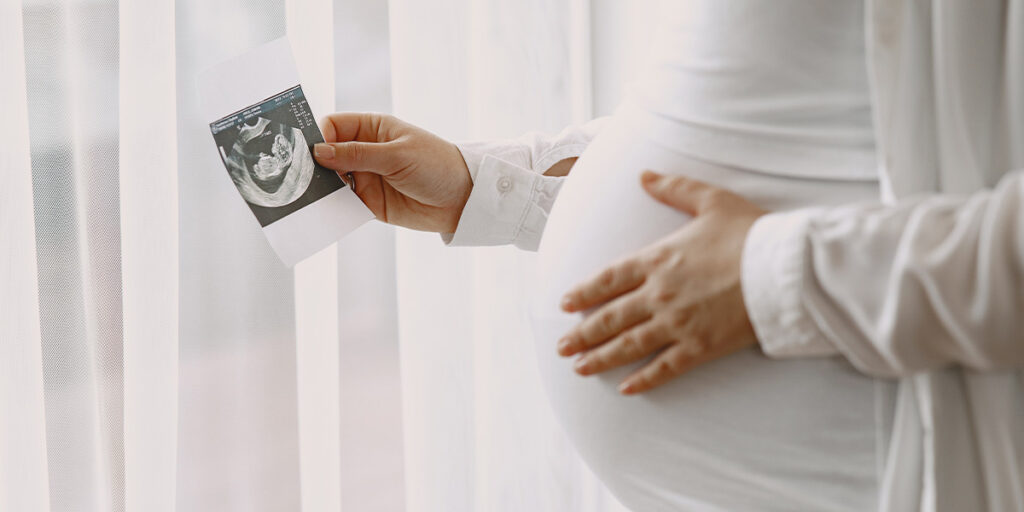
Fertility Centre – IVF & Fertility Specialists in Malaysia
SPECIALTY
Fertility Centre
At Island Hospital’s Fertility Centre, we believe infertility is just a chapter. With advanced treatments and expert guidance, we help individuals and couples overcome fertility challenges.
Top Fertility Center and IVF Doctors in Malaysia
We understand that building a family is one of life’s greatest joys, yet infertility can be an emotional and challenging journey. As one of the best fertility centres in malaysia, our team of IVF specialists provides high-quality care using advanced Assisted Reproductive Technologies (ART). We combine medical expertise with compassionate support to guide you every step of the way toward parenthood.
Make An Inquiry if you have any more questions.
Fertility Treatments Offered at Island Hospital
Island Hospital offers a comprehensive range of fertility treatments. Our gynaecologists, embryologists, nurses, and technicians are always ready to provide expert guidance, diagnosis, and treatment management for patients struggling with infertility.
Intrauterine Insemination (IUI)
Intrauterine insemination (IUI) is a procedure where sperm is placed directly into the uterine cavity during ovulation to increase the number of sperm reaching the fallopian tubes and improve fertilisation chances. IUI is often recommended for couples experiencing:
- Low sperm count
- Unexplained infertility
- Thick vaginal mucus
Before the IUI procedure:
- Ovulation-stimulating medications such as Clomid, hCG (human Chorionic Gonadotropin), and FSH (follicle stimulating hormone) may be prescribed.
- Close monitoring will determine when the eggs are mature.
- Once a surge in LH hormones is detected (24 to 36 hours before ovulation), the procedure is scheduled.
- The male partner should avoid sexual activity or masturbation for 2–5 days before providing a semen sample.
- The sample can be collected at the fertility centre or at home (kept at room temperature and delivered within one hour).
- The semen is then washed in the lab to separate it from seminal fluid.
During the procedure:
A catheter is used to insert the prepared sperm directly into the uterus, maximising the number of sperm placed and increasing the possibility of conception.
In-Vitro Fertilisation (IVF)
In-vitro fertilisation (IVF) is a process where eggs are combined with sperm outside of the body, usually in a laboratory setting. IVF is often recommended when:
- An egg donor is used
- A surrogate is needed
- Severe male infertility is present
- The fallopian tubes are blocked
- Previously frozen eggs are being used
Advanced IVF Technology
At Island Hospital, we use advanced technology to improve IVF outcomes, including:
1. Blastocyst Culture and Transfer
- A specialised IVF technique where an egg at the blastocyst stage (five days after fertilisation) is transferred into the womb.
- This stage matches the uterine environment, improving implantation chances and allowing fewer embryos to be replaced, reducing the risk of multiple pregnancies.
- At Island Hospital, 50%–60% of eggs reach the blastocyst stage, depending on the health of the egg and sperm.
2. Blastocyst Vitrification (Embryo Freezing)
- Embryos are exposed to high levels of cryoprotectants to prevent ice formation.
- They are rapidly cooled to -196°C in 2–3 seconds, turning into a glass-like state to protect cells from damage.
- This method achieves consistent survival rates above 90%, allowing embryos to be safely stored and later warmed for transfer.
The IVF Procedure at Island Hospital
At Island Hospital’s Fertility Centre, the IVF journey typically follows these stages:
Day 1: Consultation with Doctor
- Medical tests and bloodwork are performed to assess suitability.
- The doctor discusses possible treatment methods with the couple.
Day 2 – Day 16: Taking Fertility Medication
- Daily injections stimulate the ovaries to produce mature eggs.
- Medication can be self-administered or given by A&E staff at Island Hospital.
- Regular monitoring ensures proper response to treatment.
Day 17: Egg Retrieval and Fertilisation
- hCG is administered at an exact time to finalise egg maturation.
- The patient is sedated for egg retrieval.
- A semen sample is collected and washed.
- The embryologist places around 10,000 sperm with each oocyte in culture dishes, which are kept in a special incubator.
- After 12–24 hours, fertilisation signs are checked.
Day 17 – Day 22: Pre-implantation Genetic Testing for Aneuploidy (PGT-A)
- Five days after embryo development, a few cells are removed for testing.
- PGT-A screens for chromosomal abnormalities and can determine gender.
- Healthy embryos are transferred; extras are frozen for future use.
Day 22: Embryo Transfer
- A thin, flexible tube is used to place the embryo into the uterus.
- If transfer is not possible immediately, embryos are frozen for the next cycle.
Day 36: Pregnancy Test
- Two weeks after transfer, a pregnancy test is taken.
- If positive, a follow-up ultrasound is scheduled within two weeks.
Outcomes:
- Average age of women undergoing IVF: 38–45 years.
- Implantation rate: 40%–50%
- Live birth rate: 30%–40% (as of 2018)
Intracytoplasmic Sperm Injection (ICSI)
ICSI is similar to IVF, except a single sperm is injected directly into an egg by an embryologist. This method bypasses the sperm’s need to penetrate the egg naturally, making it suitable for:
- Low sperm count
- Poor sperm motility or abnormal shape
- Sperm retrieved surgically (MESA/PESA, TESE/TESA), from urine, or via electro-ejaculation
- High antibody levels in semen
- Previous fertilisation failures with conventional IVF
Although fertilisation cannot be guaranteed, ICSI allows couples with severe male infertility issues to have a higher chance of success.
Egg and Embryo Freezing
Egg and embryo freezing is similar to IVF and takes around two weeks to complete. The patient undergoes daily hormonal injections to stimulate egg production, with regular monitoring via blood tests and ultrasounds. Once ready, eggs are harvested and frozen for future use.
This option is suitable if you:
- Have a condition that may affect fertility
- Are taking cancer treatments
- Are undergoing IVF
- Wish to preserve eggs/embryos for later use
Sperm and Egg Donation
Also known as third-party reproduction, this involves another person donating sperm or eggs to help a couple conceive. Donors can be known or anonymous.
The following are several criteria that must be met by the donor before the donation can take place:
- Sperm donors: aged 20–40 years
- Egg donors: aged 20–30 years
- Must be free from infections such as HIV and Hepatitis C
- No high genetic disease risk
- Must pass psychological screening
All donors are required to undergo an infectious disease and genetic testing screening. These screening processes are in compliance with FDA regulations for human cell and tissue products.
However, couples are advised to consider the legal and emotional implications before proceeding.
Fertility Centre FAQs
Kindly email us at info@islandhospital.com for an initial cost estimation. Please note that the figures provided are estimates only and may vary depending on your individual condition.
The choice between IUI and IVF depends on factors such as age, medical history, fertility challenges, and cost considerations. IUI is usually recommended for mild fertility issues or unexplained infertility, while IVF is often preferred for more complex cases, lower ovarian reserve, or when quicker results are desired.
Several risks are associated with IVF, including:
- Multiple births
- Ovarian hyperstimulation syndrome (OHSS)
- Miscarriage
- Egg retrieval complications
- Ectopic pregnancy
- Birth defects
- Cancer
- Financial and emotional stress
While IVF is generally safe and most women can resume normal activities almost immediately, you may experiencesome side effects such as mild cramping, bloating, constipation, breast tenderness, and passing clear or blood-tinged fluid after the procedure.
Fertility medications may also cause mood swings, headaches, and hot flashes. If you experience heavy vaginal bleeding, pelvic pain, blood in your urine, or high fever, contact your doctor immediately.
IVF is usually not painful. Some women may feel anxious about daily fertility injections, but you will be taught how to administer them, or our A&E staff can assist you. Light sedation is given during egg retrieval, and mild ovarian cramping afterward can be managed with medication.
An IVF cycle typically takes around 4 to 6 weeks. If preimplantation genetic diagnosis (PGD) testing is chosen, it may add another 4 to 5 weeks to the process.
You can boost your chances by:
- Maintaining a healthy BMI between 20 and 25
- Quitting smoking
- Reducing stress
- Consuming alcohol and caffeine in moderation
- Eating a nutrient-rich diet with vitamins and minerals such as vitamin A, B, zinc, and magnesium
Physically, doctors may recommend trying again after your first normal menstrual cycle, though some suggest waiting for two cycles. The first period after miscarriage usually occurs 4 to 8 weeks later. It is important to allow time for complete physical recovery before another IVF attempt.
Emotionally, it is best to take some time to heal before resuming treatment, as IVF can be both emotionally and financially demanding.
Research suggests that children conceived through ICSI may have a slightly higher risk of birth defects, particularly affecting the heart, eyes, reproductive organs, and urinary system. If you are concerned, you can opt for a preimplantation genetic diagnosis (PGD) test to screen for genetic disorders. Discuss any potential risks with your doctor.
PGT-A, also known as preimplantation genetic screening (PGS), determines the chromosomal status of IVF embryos by examining all 23 pairs of human chromosomes. It helps identify embryos with genetic diseases or chromosomal abnormalities, reducing the risk of affected offspring.
Only embryos with the correct number of chromosomes can implant and develop into a healthy baby. This test also reveals the embryo’s gender.
At Island Hospital Fertility Centre, we uphold the highest safety and accuracy standards. Strict verification protocols are in place to ensure that no errors occur during the embryo implantation process.









